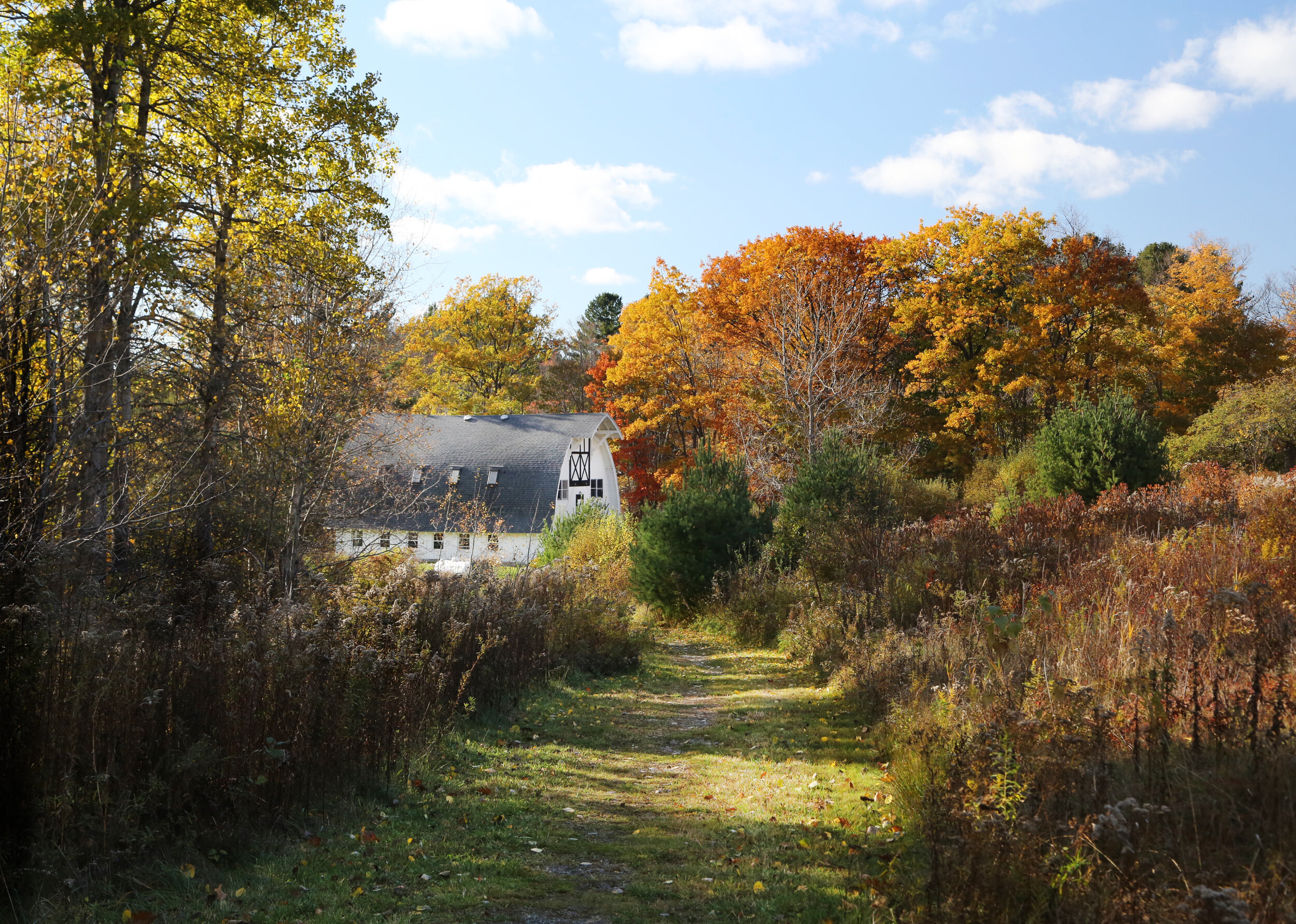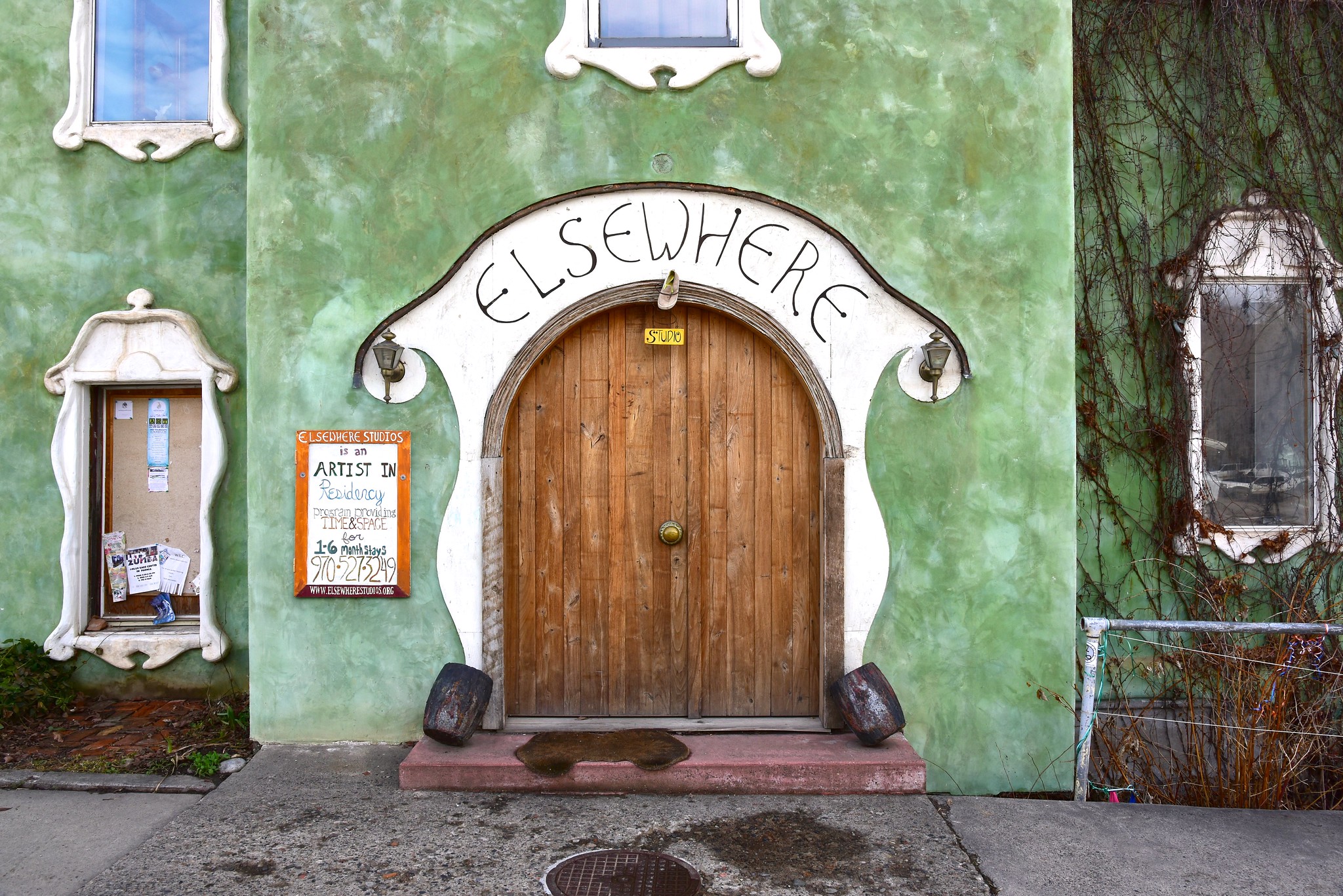interviews
The Writing Life on the Road: Noah Cicero’s Nevada

Noah Cicero on imitation, a sense of place, and forgetting fame

Electric Literature’s contributing editor Michael J Seidlinger is on the road as part of his project, #FollowMeBook, visiting writers and exploring the limits of social media. As part of a limited summer series called “The Writing Life on the Road,” he’s sharing his conversations with writers as he makes his way from New York to California. This week, Noah Cicero, author of Best Behavior, Human War, and Bipolar Cowboy, shares details and insights from his writing life in Nevada.
What follows are highlights from Noah’s interview with Michael. His responses have been edited for clarity.
Setting the Scene: Sitting by a Creek in Nevada
We’re in the Spring Mountains of Nevada, in Mount Charleston, at the Deer Creek Trail, sitting next to a nice flowing creek right here, nice clear water. A lot of families are here. I usually come every Sunday with my friend Bernice. We talk about our problems for the week. I’ll tell her any philosophical ideas I had, or any book ideas. That’s about the only time I tell anyone that out loud.

Chekhov, Solzhenitsyn & Dave Chappelle: Imitation as Inspiration
When I was young, I didn’t have to think very hard about it and then I would just write, and I would write a lot. Before I published The Human War, I would imitate someone. When I wrote Treatise, I imitated Chekhov. I took Chekhov’s My Life — I found the text of it on the internet and I put it on a Word document, and then I would just delete paragraphs as I went through. So I would study Chekhov to know what he did, because I wanted to change as a writer. Every time I want to change as a writer, I find a couple of people and then I try to duplicate them and figure out what they’re doing.
Go to Work was an accident. I got a job at a corrections place. It wasn’t a high level security prison; it was just drug addicts and people who got into bar fights. I worked there for five weeks, and it was so crazy and weird that I started naturally writing about it. I wanted to make it like an action movie, or like Law & Order, but my ironic version of it. Then I read The Gulag Archipelago by Solzhenitsyn. In Go to Work, when he gets taken, those scenes are duplicates from The Gulag Archipelago. The fantastical scenes are from movies, like Wahlberg movies. I was seriously laughing the entire time that I was writing that book. When I write, it’s like I’m doing stand-up comedy and I’m just kind of acting it out and having lots of fun. I love stand-up comedy. I get huge amounts of influence from it, like Dave Chappelle and Louis CK. I will just watch them on Netflix before I’m going to bed — random ones.
“Every time I want to change as a writer, I find a couple of people and then I try to duplicate them and figure out what they’re doing.”
The Writing Process: Listening to Metallica Over and Over
Give it to the Grand Canyon took me nine months to write, 40,000 words. I go to Starbucks and put headphones on and listen to music — the same song over and over again. Go to Work I wrote mostly to “Rhyme” by Metallica. In Bipolar Cowboy, the songs in the book are the songs I was listening to — “Skinny Love” by Bon Iver, Tina Turner’s “What’s Love Got to Do With It,” Fleetwood Mac songs. I didn’t do that when I was young but now I do because I’m never going to be famous famous. (If someone gave me $80,000 and said ‘here’s a concept and a nice house to sit in,’ I could write on a Mac computer every day peacefully with a research assistant — the full-fledged Dave Eggers experience — and not listen to music.) When I wrote the Grand Canyon book, it was three-four times a week. I would go to Starbucks and sit for an hour and a half until I finished the coffee, about 1,100 words at a time. I don’t count the words, really, I count the sittings.
“I don’t count the words, really, I count the sittings.”
The Writing Life on the Road: Jeff VanderMeer’s Tallahassee
From Ohio to Korea to Vegas: A Sense of Place in Writing
When I lived in Ohio it was always very existential, because Ohio is a fatalistic place. But then when I moved to Korea I couldn’t get to a bookstore with English books except once a month. So I bought giant books like Infinite Jest and Underworld, American Tragedy, 2666. I just made it a point to read these giant books. In Korea, I was drinking and partying and going to work. At the end I wrote five short stories that made it into the Bathroom Reader. In Korea, there was a literary community, but that’s when I kind of changed. I started reading Murakami, David Foster Wallace, I read Don DeLillo, I read Thomas Pynchon, and I’m surrounded by MFA people who are talking about really intense criticism and postmodern theory.
After Korea, I went and lived at the Grand Canyon, where there was no literary community, and then Las Vegas. I spent a year reading mass amounts of zen and nature books like Gary Snyder, Wallace Stegner. I even read Zane Grey, his western-themed books. I went to Desert Poetry at Danielle Pafunda’s house and everyone there was MFA. While I’m there, I ended up sitting with two poets. One works for Publisher’s Weekly and the other guy goes to University of Chicago for law. And I’m sitting there talking about poetry and I’m talking about Supreme Court cases at a 100-year old house in the middle of the desert with a Port-a-Potty.
The Dawn of the Literary Internet
It was 2002, or 2003, but I was living in Vienna, which is a town of 2,000 people and one red light. Then I moved to a town closer to Youngstown that had businesses and probably 10,000 or 15,000 people. Through the internet I found James Chapman from Fugue State and then he published The Human War, which didn’t sell many copies. I had James Chapman give me 100 copies. I sent out all 100 to different bloggers. At that point the internet had just started, we just got past AOL, so now we’re entering into the WiFi world and cellphones, but still not smartphones. At that moment when I first started, the biggest things in the world were The Paris Review and The Kenyon Review, and that was it. That was literature. If you couldn’t break in there, you had nothing. When I met Tao, we both realized that we could do all kinds of things with the internet. We could talk to a lot of people and double submit and triple submit, basically twenty submit a couple of times. “I Clean in Silence” was published on five different sites. Me and Tao were scouring the internet. We took advantage of that and started publishing anywhere. Then we had the blogs. My first blog was Get Published or Die Trying, then I made another one. We took advantage of the internet as a medium to get our work out there, to bypass The Paris Review.
We took advantage of the internet as a medium to get our work out there, to bypass The Paris Review.

What Does the Future Hold?
Well, I just wrote a book about the Grand Canyon and I just wrote a book called The Nature Documentary. Either a book about Las Vegas that’s very fantastical, or I was thinking a book about where I’m from, because not many people are from a town with one red light. I tried to write it before, but I was very judgmental of the town. Now I’ve separated myself — I’m 36 years old, and I don’t want to write about myself. There might be a young boy character but it’s going to be in that town, because if you go to the Barnes & Noble bookshop, nobody from one red light town is writing that. It would still be very nature-y. I want to write books for adults. I don’t want to write books for 22 year olds for the rest of my life. There is this thing where we try to replicate Catcher in the Rye over and over again where we only write books for young kids. Books are either written for young people or they’re about two rich people who get divorced. These are the only options we’re offering literature right now. I always try to not contaminate myself with what everyone’s doing. I’m not trying to get famous.
“Books are either written for young people or they’re about two rich people who get divorced. These are the only options we’re offering literature right now.”









